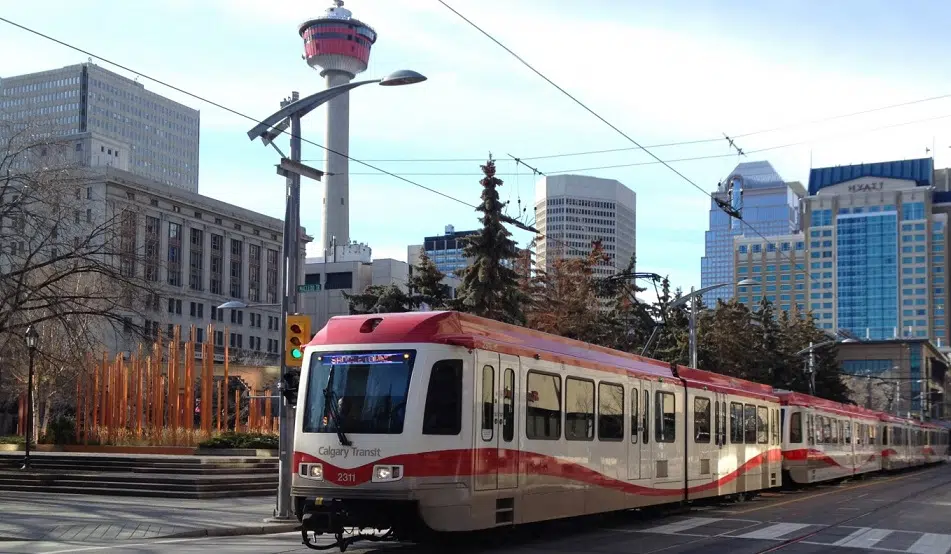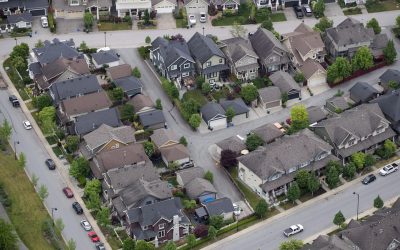Good day, ladies and gentlemen. My name is Dennis Owens, I am the Senior Policy Analyst at the Frontier Centre for Public Policy, and I am here to speak in favour of the amendment to Plan Winnipeg that will allow for the construction of the new housing development called Waverley West.
In his announcement of this hearing, Mayor Sam Katz said, “We want to capture the growth of our city by expanding our tax base, but we must do so in a responsible fashion. Through the hearing process, we will ensure this development will not go forward unless it benefits our city over the long term.” The Mayor’s description of the process is entirely accurate. But in order to make a responsible decision, this council should consider the meaning of the word, “benefit,” and how widely in this case it should be construed.
I see on the list of presenters a host of people who will nitpick away at this proposal and tell you that it is going to cost too much for services and their maintenance, for water and sewer, for transit and for snow removal. The classic rebuttal to these concerns holds that the development will pay for itself by expanding the tax base and that spin-offs from a stimulated construction industry will ripple throughout the city. The narrow framework of this argument asks you to do detailed calculations on these costs and benefits and decide the issue however the numbers come out.
At the Frontier Centre we take a much wider view of such matters. Although I personally do not choose to live in a suburban community like Waverley West, there is no doubt that many thousands of people in Winnipeg do. That is a fact that bears no contradiction, and we have seen it evidenced on all sides of the city. We live in a society of steadily increasing wealth, and a major expression of that good fortune is that Winnipeggers can avail themselves of the convenience and mobility afforded by the automobile. They can take their families out of the hurly-burly of the inner city and locate them further out. They do this by choice, a choice I do not share, but one that I respect. I’m asking you to extend your respect to those thousands of decisions by allowing their expression.
If this council wants these families to choose otherwise and to seek housing closer to the centre of the city, there are several means to do so. Rather than use the extraordinary powers vested in you by Plan Winnipeg to deny this choice, you can mitigate it by addressing the elements of inner-city life that drive people away to the edges. I see these deficiencies expressed every day, and I will list the most important. (If you will allow me to insert a commercial here, these issues are widely discussed on the Frontier Centre’s website at fcpp.org.)
Number one is public safety. The performance numbers for the Winnipeg Police Service are not good. Their clearance rates for crimes, especially property crimes, are abysmally low. The reasons for this are numerous, and based entirely on bad policy choices. You have it within your power to reform this most important of public services, and I highly recommend that you do so. More efficient and effective policing is the sine qua non of making the inner city more attractive. Frankly, to forbid people to seek protection for their families by escaping unpleasant conditions in the core is arrogant in the extreme.
Number two is the public schools. Although you have much less power to do anything about the low quality of instruction and the poor performance of these bedrock institutions, you ought to be pressing the province to address these failures. The tools to do that are readily available.
Number three is the low quality of services offered by the City of Winnipeg, and here you are right at home. It is not just a case of shoddy roads or a disintegrating sewer system, even though problems like that are very real. It has to do with the instruments of public policy that suppress the vitality of the city’s economy, matters like business permits and licensing, zoning and building codes. We are the most over-regulated city on the continent. To make the City workforce more responsive, the best means are the Indianapolis model or the Phoenix model of managed competition.
Although this list is by no means exclusive, addressing these items would go a long way towards making the established city a better place to live. I address these thoughts most especially to the Councillors who represent the inner-city wards. If you don’t want your people to move outwards, clean up your act. Make the tax climate more attractive and make investment in inner-city housing possible by deregulating and demanding that the Province lift the rent controls that are hollowing out the central tax base. You have the power to forbid Waverley West, but you also have the ability to make such developments unnecessary.
I would like to close with a few words about the bugaboo that you will hear from presenters opposed to Waverley West, namely the dreaded prospect of “urban sprawl.” Concern over lower-density sprawl in Western countries has prompted an “anti-sprawl” policy agenda often referred to as “smart growth.” It generally involves establishing intrusive and arbitrary controls on land use. It includes prohibition of development outside “urban growth boundaries,” a bias towards increased neighbourhood population densities and a substitution of mass transit for highways. Stripped down, it represents an attempt to overwhelm powerful market forces and consumer demands through the bureaucratic fiat of planners.
Unsurprisingly, consumer forces are winning. The city of Portland, Oregon, a world leader in “smart growth,” is retreating from the policy because it isn’t working. Land rationing has spiked housing costs and forced buyers, especially the young, ethnic minorities and immigrants, out of the market. A shortage of commercial land appears to be damaging the regional economy. Traffic congestion has worsened considerably with higher densities. A powerful voter backlash passed a referendum prohibiting further densification of existing neighbourhoods.
It’s always a temptation for politicians to impose more rules and regulations, but we need to address root causes. As I have said, for starters, eliminate obtrusive zoning rules, embrace more effective policing, encourage housing by ending rent controls, and free up schools to allow excellence and reward teachers. Lower city costs by embracing entrepreneurial service delivery models. Instead of pouring more money into a declining transport mode, improve transit’s service and efficiency by moving to the competitive models found in all major European cities. Slash your reliance on property taxes, which are a tax on density. Then change the smaller property tax to de-emphasize improvements on the land. This will make the city spread up instead of out.
If you forbid Waverley West, you will simply drive the people who want to buy houses there out of the city entirely, to the exurbs, and thereby exacerbate the City’s dearth of tax revenue to support services. I appeal to your better angels, to a view that will allow the fullest expression for all citizens of their values. Ease up on the stranglehold that Plan Winnipeg imposes on their dreams and wishes. Abandon the intellectual conceit that the views of a few central planners are superior to the collective choices of thousands of citizens.
Let Waverley West proceed, and let’s compete for people on the basis of excellence, not command and control.


